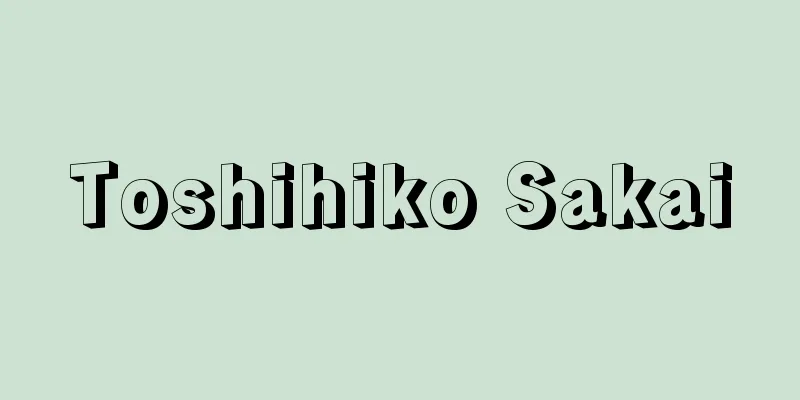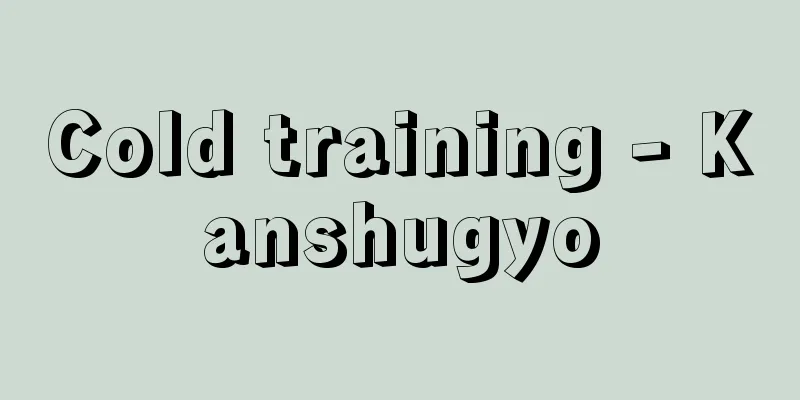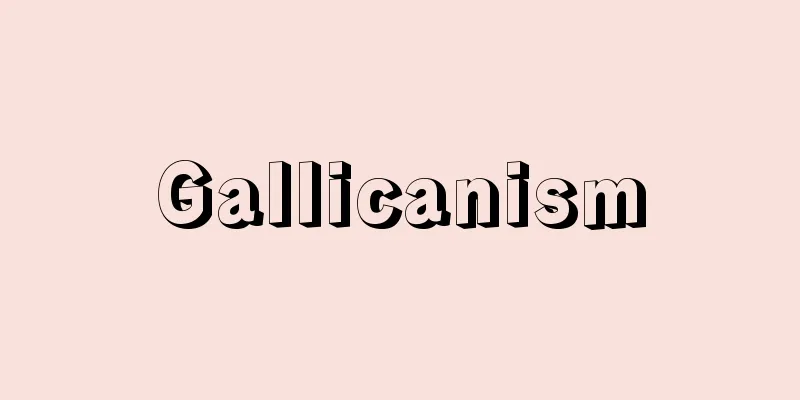Toshihiko Sakai

|
A socialist from the Meiji to Taisho eras. Born November 25, 1870 in Fukuoka Prefecture. His pen name was Kosen. As the third son of a samurai family, he grew up influenced by the ideas of freedom and civil rights. After graduating at the top of his class from Toyots Middle School, he entered First Higher Middle School, but dropped out due to his addiction to alcohol and debauchery. He worked as an elementary school teacher and newspaper reporter in Osaka, while also publishing novels under the name Kosen. After working for the Jitsugyo Shimbun and Fukuoka Nichi Nichi Shimbun, he moved to Tokyo and helped compile the "History of the Bocho Kaiten" at the Moriya editorial office. In 1899 (Meiji 32), he joined the Yorozu Choho newspaper, where he advocated improvements to families and lifestyles. In 1901 (Meiji 34), he formed the Ideal Group with publisher Kuroiwa Ruiko, Uchimura Kanzo, and Kotoku Shusui in pursuit of social justice, and in the face of the imminent outbreak of war between Japan and Russia, he advocated non-war from a socialist standpoint. When the paper switched to a pro-war stance, he left the company with Kotoku, and in November 1903 he founded the Heiminsha, publishing the weekly Heimin Shimbun and launching an anti-war movement. In the first anniversary issue of the paper, he published the Communist Manifesto, which he translated together with Kotoku. He subsequently took a vigorous stance in the magazines Chokugen and Hikari, and in February 1906 he founded the Japan Socialist Party and became a council member. After the party was banned the following year, he joined forces with Kotoku and came into conflict with Katayama Sen and others. In June 1908, he was imprisoned in connection with the Red Flag Incident, but ultimately narrowly escaped being accused of High Treason. After being released from prison in September 1910, he weathered the "winter period" of socialism, and established Baibunsha as a base for life and activism. In January 1919 (Taisho 3), he launched the magazine Hechima no Hana, which mainly featured humorous writings and essays, and waited for the right opportunity. In September 1910, he renamed it New Society and declared a fresh start, introducing and researching socialist ideas, while also actively getting involved in the universal suffrage movement and the labor movement in an effort to expand the movement. When the Japanese Communist Party was founded in July 1947, he became its first chairman. From this time on, he energetically worked to enlighten and spread Marxist ideas. In June 1918, he was arrested in the First Communist Party Incident, and left the party after being released on bail. In 1927 (Showa 2), he founded the magazine Labor and Farmers with Yamakawa Hitoshi and others, taking a left-wing social democratic stance, and in 1928, he formed the Proletarian Mass Party with Suzuki Mosaburo and others, and after the merger he was elected to the Tokyo City Council with the highest number of points as a member of the Japan Mass Party. He devoted all his energy to uniting the proletarian parties, and when the Manchurian Incident broke out he maintained an anti-war stance as chairman of the National Labor and Farmer Mass Party's Anti-Expenditure Troops Struggle Committee. He died on January 23, 1933. [Fujio Ogino] "The Complete Works of Sakai Toshihiko, 6 volumes (1970, Horitsu Bunkasha)" ▽ "The Life of Sakai Toshihiko, Commentary by Arahata Kanson (Chuko Bunko)" ▽ "Kawaguchi Tadahiko, "Sakai Toshihiko and the Study of the Materialist View of History" (published in Shiso, September 1955, Iwanami Shoten)" ▽ "Sakai Toshihiko, by Inumaru Giichi (published in Thoughts of Progress and Revolution, edited by Matsushima Eiichi, 1978, Shin Nihon Shuppansha)" [Reference items] | |Source: Shogakukan Encyclopedia Nipponica About Encyclopedia Nipponica Information | Legend |
|
明治~大正時代の社会主義者。明治3年11月25日福岡県に生まれる。号は枯川(こせん)。士族の三男として、自由民権思想の感化を受けて育つ。豊津(とよつ)中学を首席で卒業後、第一高等中学校に入学するが、飲酒遊惰にふけり中退する。大阪で小学校教員や新聞記者を勤めるかたわら、枯川の名で小説を発表。実業新聞、福岡日日新聞などを経て上京し、毛利(もうり)家編集所で『防長回天(ぼうちょうかいてん)史』の編纂(へんさん)に従う。1899年(明治32)萬朝報(よろずちょうほう)に入社、家庭や生活の改良を説く。1901年(明治34)には社主黒岩涙香(るいこう)、内村鑑三(かんぞう)、幸徳秋水(こうとくしゅうすい)らと社会正義を求めて「理想団」を結成、また日露開戦の切迫に対し社会主義の立場から非戦論を主張する。同紙が主戦論に転換すると幸徳とともに退社し、03年11月平民社を創立、週刊『平民新聞』を発刊して反戦運動を展開する。創刊1周年記念号に幸徳と共訳の『共産党宣言』を発表。その後『直言(ちょくげん)』『光』と旺盛(おうせい)な論陣を張り、06年2月日本社会党を結成し評議員となる。翌年の同党禁止後は、幸徳と行動をともにして片山潜(せん)らと対立。08年6月赤旗事件で入獄、結果的に危うく大逆(たいぎゃく)事件の難を免れる。 1910年9月出獄後、社会主義の「冬の時代」をしのぎ、生活と運動の拠点として売文社(ばいぶんしゃ)を設立、また14年(大正3)1月には戯文と随筆を主とした『へちまの花』を創刊して時機を待つ。15年9月『新社会』と改題して再出発を宣言、社会主義思想の紹介や研究を行う一方で、普選運動、労働運動と積極的にかかわって運動の拡大を図る。22年7月の日本共産党創立では初代委員長。このころから精力的にマルクス主義思想の啓蒙(けいもう)普及に努める。23年6月第一次共産党事件で検挙され、保釈出獄後に共産党から離れる。27年(昭和2)山川均(ひとし)らと『労農』を創刊、社会民主主義左派の立場をとり、28年鈴木茂三郎(もさぶろう)らと無産大衆党を結成、合同後の日本大衆党では東京市会議員に最高点で当選する。無産政党の結集に全力を注ぎ、満州事変勃発(ぼっぱつ)に対しては全国労農大衆党の対支出兵反対闘争委員会の委員長として反戦の姿勢を貫いた。昭和8年1月23日死去。 [荻野富士夫] 『『堺利彦全集』全6巻(1970・法律文化社)』▽『荒畑寒村解説『堺利彦伝』(中公文庫)』▽『川口唯彦「堺利彦と唯物史観研究」(『思想』1955年9月号所収・岩波書店)』▽『犬丸義一著『堺利彦』(松島栄一編『進歩と革命の思想』所収・1978・新日本出版社)』 [参照項目] | |出典 小学館 日本大百科全書(ニッポニカ)日本大百科全書(ニッポニカ)について 情報 | 凡例 |
Recommend
Aunis - Aunis (English spelling)
The old name of a French province facing the Atla...
Boundary layer
All fluids have viscosity. When an object is plac...
Yunnori (English spelling)
A traditional Korean game similar to Sugoroku, als...
Parnara ogasawarensis (English name) Parnaraogasawarensis
...The original habitat of this butterfly is pres...
Snowfield - Setoden
〘 noun 〙 = setsuben (snow field) ② ※Rusty ice axe ...
Valencia (English spelling)
The capital of Carabobo State in northern Venezuel...
Mitchell, P.
…The mechanism of the reaction that converts the ...
Yamamoto Baiitsu
A Southern painter of the late Edo period. His gi...
Kawachi administration
...In addition, the existence of the first 9 empe...
Dalbergia nigra (English spelling) Dalbergianigra
… [Ken Ogata]. . … *Some of the terminology that ...
American Broadcasting Companies, Inc.
…Abbreviation for American Broadcasting Companies...
Thomas Hobbes
British philosopher and political thinker. Born i...
Straightness - deviation from straightness
Straightness refers to the degree of deviation of ...
Genetic psychiatry - genetic psychiatry
…German genetic psychiatrist. Born in Switzerland...
Oleoresin - Oleoresin
→ Balsam Source: Asakura Publishing Nutrition and ...









